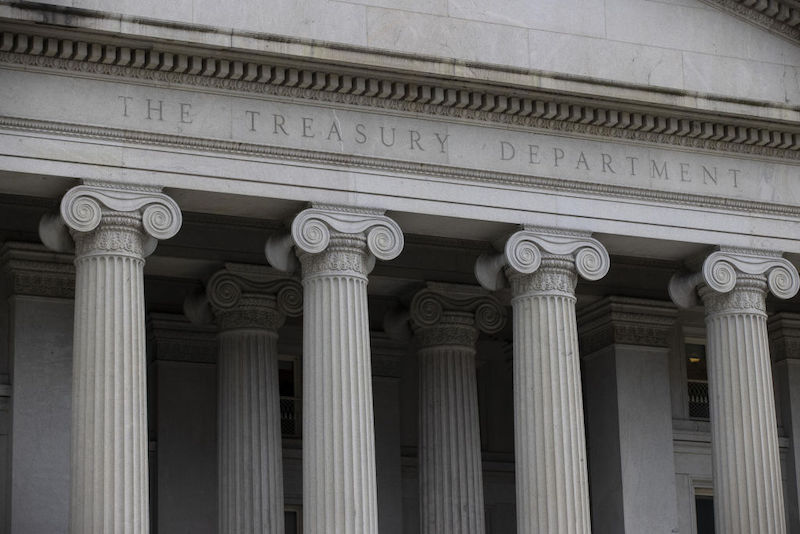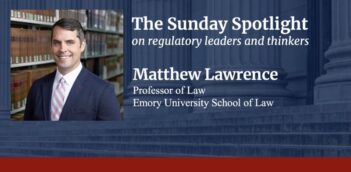
As fintech grows, FinCEN is uniquely positioned to regulate these emerging financial services.
The Financial Crimes Enforcement Network (FinCEN)—housed in the U.S. Department of Treasury—is poised to be one of the most influential federal government agencies in charting the course for financial services innovation over the next several years. It has broad regulatory authority over a range of financial institutions, including banks, money services businesses, casinos, broker-dealers, insurance companies, and dealers in precious metals and jewels.
Although FinCEN’s mission focuses on combatting financial crimes, the agency’s work intersects with a number of fintech issues of significance to consumers today. For example, FinCEN is responsible for issuing standards for anti-money laundering (AML) compliance programs governing bank-fintech partnerships and certain cryptocurrency companies and taking enforcement action when such companies violate AML requirements. In addition, the recently enacted Anti-Money Laundering Act of 2020 (AMLA), among other things, gives FinCEN additional information collection tools and establishes an important role for technology and innovation in enhancing financial institutions’ and FinCEN’s strategies for preventing money laundering and terrorist financing.
The U.S. Treasury Department formed FinCEN in 1990 as an intelligence-gathering unit to detect, investigate, and prosecute money laundering and other financial crimes. Its various responsibilities have grown over its short life to include rulemaking authority under the U.S. Bank Secrecy Act (BSA), which is the primary federal law that imposes AML compliance obligations on banks and other financial institutions. FinCEN also has authority to examine certain non-bank financial institutions for compliance with financial crimes requirements and to bring enforcement actions against financial institutions for violating these requirements.
AML is a key compliance consideration for banks that are designing innovative platforms for loan, deposit, and payment card products in coordination with fintech companies. Banks are required, as part of their customer identification programs (CIP), to collect identifying information from customers before opening an account and then to verify this information with government-issued documents or other non-documentary sources. Banks must also have processes in place to detect and report suspicious activities through the filing of suspicious activity reports (SARs).
Complying with these requirements for traditional bank products demands significant resources, as well as robust policies, procedures, and other internal controls. Doing so with innovative bank products that fintech partners deliver through digital channels requires careful planning among the relevant bank, fintech company, and any service providers. It also requires a thoughtful approach to how best to allocate responsibility for various aspects of the AML compliance program.
FinCEN can provide helpful clarity about banks’ CIP and SAR requirements in the context of innovative loan and deposit platforms by issuing regulations or guidance under the BSA. In addition, FinCEN is equipped to provide banks and fintech companies with insight into the ways in which nefarious actors may conduct money laundering or terrorist financing through these platforms.
AML compliance is not only a key consideration for the development of innovative products or services, FinCEN and the federal banking agencies are promoting innovative approaches to banks’ day-to-day AML compliance efforts. In December 2018, the federal bank regulators issued a joint statement encouraging banks to consider and implement responsibly innovative approaches to meet their BSA/AML compliance obligations. The statement observed that banks are experimenting with artificial intelligence and digital identity technologies to strengthen their BSA/AML compliance approaches and to enhance transaction monitoring systems. FinCEN can continue to urge financial institutions to cultivate innovative technologies by making sure the industry is aware of the risks, opportunities, and overall use of those technologies.
FinCEN also plays a unique and direct role in regulating cryptocurrency and other digital assets. It was the first federal government agency to evaluate cryptocurrency and determine how it fits within its regulatory framework. FinCEN issued guidance in 2013, taking the position that “exchangers” and “administrators” of what it called “convertible virtual currency” would be regulated under the BSA as money transmitters—a type of money services business. In the years that followed, FinCEN continued to issue administrative rulings clarifying the treatment of cryptocurrency technologies and companies. It also developed an early track record of bringing enforcement actions against cryptocurrency companies.
In 2020, the Federal Reserve and FinCEN issued a proposal to extend the travel rule to transfers of digital assets, requiring financial institutions to collect customer information and transmit such information, along with funds transfers, to intermediary and beneficiary financial institutions. In addition, FinCEN subsequently issued a proposal that would, among other requirements, extend reporting and information collection requirements currently imposed on certain transfers of digital assets to recipients that rely upon so-called unhosted wallets.
Financial crimes represent significant impediments to growth in the use of digital assets. U.S. Secretary of the Treasury Janet Yellen has reportedly said that cryptocurrencies, such as bitcoin, often are used for illicit finance. Chairman of the Federal Reserve Jerome H. Powell has reportedly associated cryptocurrencies with money laundering and other financial crimes.
Financial crime risk for cryptocurrency should be a top concern for government officials responsible for financial regulatory policy and for institutional customers adopting or offering cryptocurrency services to customers. FinCEN, given its long history in evaluating cryptocurrencies within regulated financial institutions, has a unique understanding and experience with digital assets. Accordingly, FinCEN is well positioned to craft regulations and issue guidance that mitigate the risks associated with digital assets without impeding innovation.
The AMLA’s signature reform is the creation of a beneficial owner registry to house information about the individuals who own or control corporate entities. This registry is the U.S. Congress’s response to nefarious actors using shell companies to conceal illegal activity—a practice that gained international notoriety following the release of the Panama Papers. The new law requires certain U.S. companies and companies doing business in the United States to disclose information to FinCEN about the beneficial ownership of legal entities, including the name, date of birth, address, and unique identifying numbers—such as driver’s license or passport numbers—of their beneficial owners.
AMLA also champions innovation and technology in strengthening AML protections for the financial sector. The act requires the head of each financial regulatory agency to appoint innovation officers. It also requires FinCEN to brief the U.S. Senate Banking Committee and U.S. House of Representatives Financial Services Committee on the use of emerging technologies, such as artificial intelligence, digital identity, and blockchain.
The new law creates a BSA Advisory Group subcommittee on Innovation and Technology, and it requires FinCEN to conduct a formal assessment of the impact of financial technology on financial crimes compliance.
The law also requires the Treasury Department to develop a rule that identifies standards to be used in testing the processes and technology of a firm’s AML compliance program, including its transaction monitoring systems. Such standards may include an emphasis on innovative technologies such as machine learning.
AMLA is a notable piece of legislation because it recognizes the benefits of technology and innovation, as applied not just to regulated financial institutions but to FinCEN as a government agency.
AML compliance plays a critical role in the design and offering of innovative financial products and services. FinCEN, as the key regulator in charge of setting AML compliance standards, has a broad set of statutory tools to foster innovation and the use of technology. AMLA expanded the technological resources and focus on innovation within FinCEN, which has a track record of monitoring, evaluating, and regulating technological innovations such as cryptocurrency.
With Congress’s support, FinCEN is uniquely positioned to transform financial crimes compliance and the financial services industry overall.
This essay is part of an 11-part series, entitled Regulation In the Era of Fintech.




